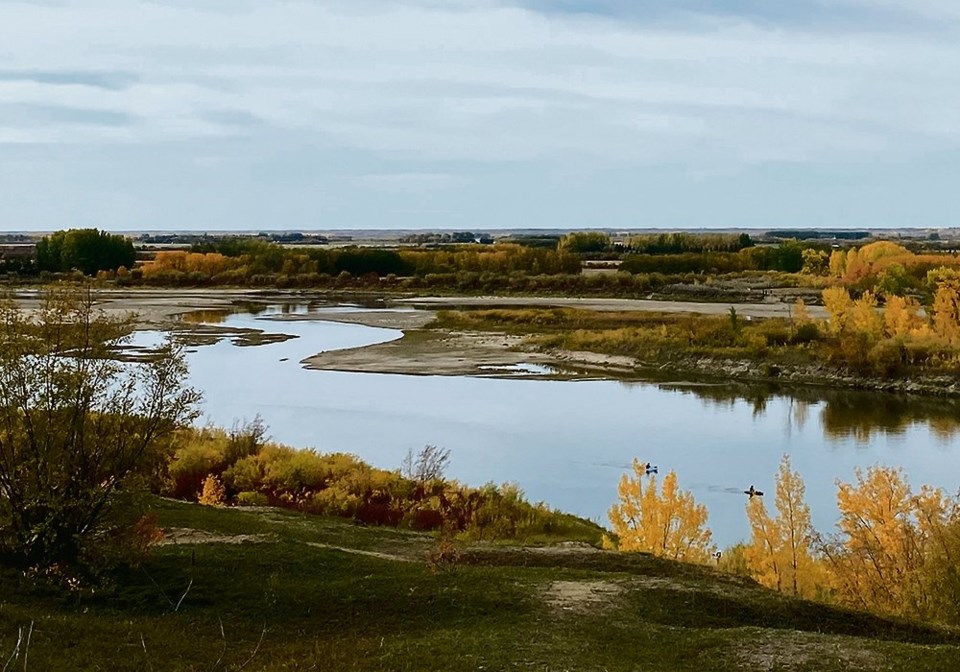In August we wrote in this space about the need for better water management.
At that time, it was already dry in much of the Prairies, and getting drier by the day, but we didn’t pull the fire alarm. The editorial instead listed ways farmers were conserving water and additional ways they could do more.
“The sky is not falling and improved water management remains squarely in reach. Giving up is not an option,” it concluded. We still believe that, but now there’s more urgency about water supplies.
It has been a challenging year for producers across the Prairies, and irrigators weren’t spared, particularly in southern Alberta, where irrigation districts reduced water allocations as they struggled with low reservoir levels.
The sector appears to have survived the growing season, and most industry leaders seem confident that reservoir levels will recover by next season.
But what if they don’t? What if there’s another year like this one? What if this becomes the new normal because of climate change?
The current situation already appears dire.
In his front-page story last week, Medicine Hat reporter Alex McCuaig noted the Lethbridge Northern Irrigation District estimated Sept. 1 that the water volume in the Oldman Dam reservoir near Pincher Creek, Alta., was 36 percent of total capacity.
As well, the Alberta environment department reported that water levels in the St. Mary Reservoir near Spring Coulee were at only two percent of total capacity as of Aug. 31. Not all the region’s reservoirs are equally depleted, but these figures should make everyone take notice.
Barb Glen, an editor with Glacier FarmMedia living in Lethbridge, took photos of the Oldman Dam reservoir in late September to run with our Sept. 28 story, and they were downright scary. Her account can be found on page 11.
McCuaig continues to follow this story, and his coverage on the front page of this issue doesn’t paint a happier picture, despite the rain that fell across southern Alberta over the weekend.
One gets the feeling that the situation is moving beyond the stage where talking about better water management is an adequate response. After all, how do we manage something that isn’t there?
Maybe we’ll get buckets of rain this fall and next spring. Maybe it will snow like the dickens in the Rocky Mountains this winter, providing the spring runoff needed to fill the reservoirs again.
But what if that doesn’t happen?
What seems to be missing in this discussion is a willingness by all users and all levels of government to consider and discuss the hard choices that might have to be made if the worst-case scenario occurs.
Governments have committed major funding for southern Alberta irrigation, but districts and their producer members haven’t decided whether they should use it to make existing infrastructure more efficient or expand irrigated acres.
The Saskatchewan government is also going ahead with plans to expand irrigation capabilities around Lake Diefenbaker.
We’re not prepared to suggest that water use through irrigation be curtailed in light of current shortages, but at what point should that possibility be considered? Merely hoping things go well doesn’t seem like a sound foundation on which to base policy decisions.
This situation is going to test all systems and put boots to the assumption that water will always be available.
And make no mistake — this is not just an Alberta problem. Water shortages in that province will have repercussions in Saskatchewan and Manitoba as well because much of those provinces’ water flows from Alberta.
This year’s crisis is a stark reminder that we don’t have a Plan B when it comes to water. It’s high time we start working on one.
Karen Briere, Bruce Dyck, Barb Glen, Michael Robin, Robin Booker and Laura Rance collaborate in the writing of Western Producer editorials.
Bookmark SASKTODAY.ca, Saskatchewan's home page, at this link.




